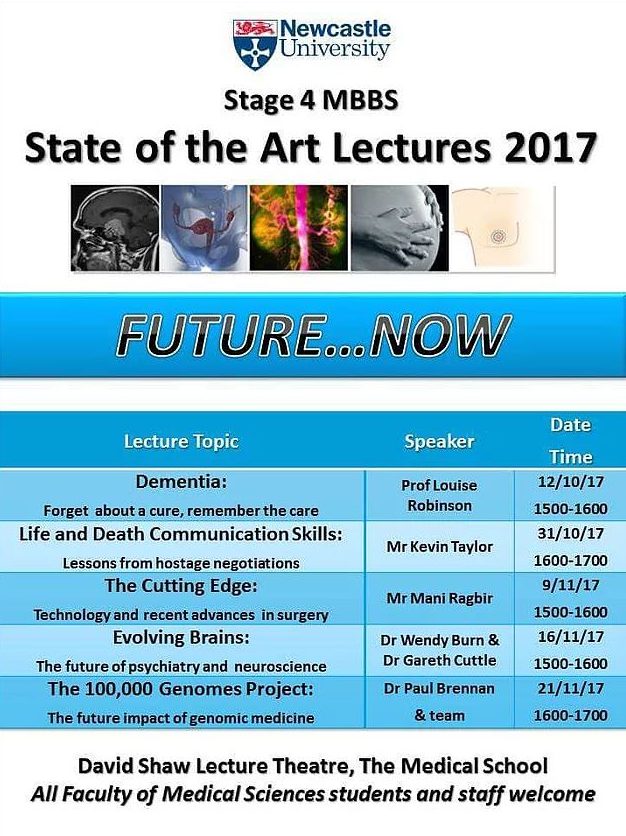By Jess Leighton
Less than 15 years since the first human genome was sequenced in its entirety, the UK Government is deep into the most ambitious genomics project ever- mapping out the DNA sequences of around 70,000 NHS patients with rare diseases and cancers. Newcastle one of only 13 ‘Genomic Medicine Centres’ in the UK, with services based at the Centre for Life covering the North East and North Cumbria. The Project and its impact so far is the topic for the final talk in the Newcastle ‘State of the Art’ lecture series.
The 100,000 Genomes Project aims to bring Whole Genome Sequencing into normal NHS treatment. At present, genetic testing usually just looks at a few sections of a person’s DNA. While testing all of a patients’ genes could find surprise results, the Project aims to make this a normal part of a healthcare, so doctors and nurses know how to explain these results and focus on conditions we may be able to test for and treat. One example is the BRCA gene, which Angelina Jolie was famously found to carry, leading her to choose to have a double mastectomy (breast removal) in light of her risk of breast cancer.
Newcastle has long been a hub for genetic medicine, and since opening in 2000, the Centre for Life has been home to both cutting edge research and engaging exhibits to bring science to children and adults of the North East. The Centre was home to the first cloned human embryo and over 4000 babies have been born thanks to the NHS fertility clinic there. This year the IVF team hit headlines by receiving the first license for mitochondrial replacement therapy or ‘three parent babies’.
The 100,000 Genomes Project is demonstrating a different side of genetics- looking at how rare diseases and cancer come about. For many patients, knowing the DNA changes which caused their illness may be a huge comfort, but it could also lead the way to new therapy. Because the project is the only one of its type in the world, the results are likely to be ground-breaking and potentially kickstart new streams of medical research. All from only a few vials of blood!
Dr Paul Brennan and the 100k team will be speaking in the David Shaw Lecture Theatre from 4-5 pm on Tuesday 21st November.
